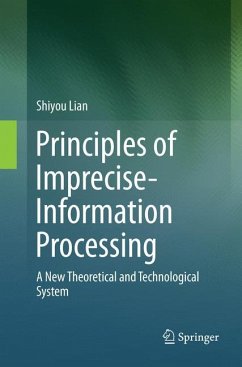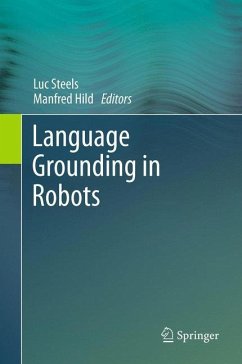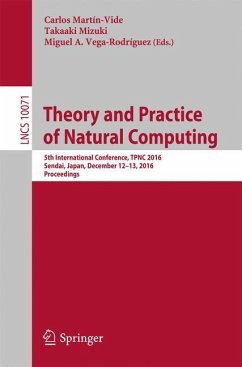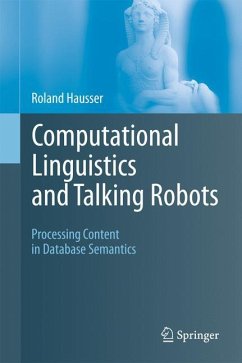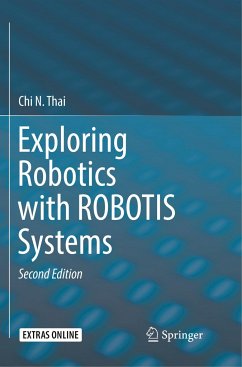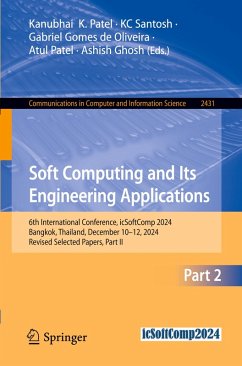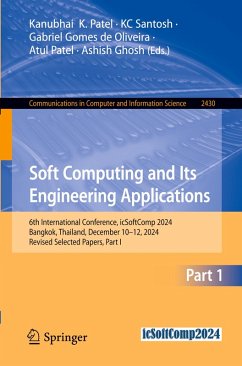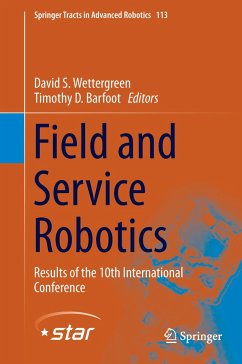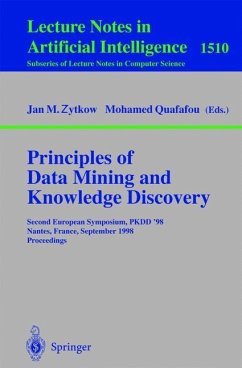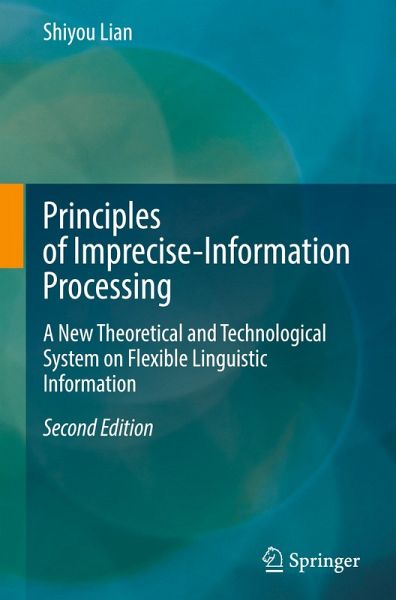
Principles of Imprecise-Information Processing
A New Theoretical and Technological System on Flexible Linguistic Information
Versandkostenfrei!
Versandfertig in 6-10 Tagen
213,99 €
inkl. MwSt.
Weitere Ausgaben:

PAYBACK Punkte
107 °P sammeln!
This book reveals the origin of imprecise information and establishes the mathematical models of flexible words and related mathematical and logical theories. It presents a set of models and algorithms of reasoning and computation, thus building a platform for related applications and laying a foundation for further research.Applying the theories and technologies in the book builds flexible AI systems to solve corresponding clustering, classification, judging, recognition, control, prediction, regression, etc., problems, and to enhance the Agent's and Robot's abilities to perceive environment ...
This book reveals the origin of imprecise information and establishes the mathematical models of flexible words and related mathematical and logical theories. It presents a set of models and algorithms of reasoning and computation, thus building a platform for related applications and laying a foundation for further research.
Applying the theories and technologies in the book builds flexible AI systems to solve corresponding clustering, classification, judging, recognition, control, prediction, regression, etc., problems, and to enhance the Agent's and Robot's abilities to perceive environment and control behavior. Combine large language models (LLMs) with flexible linguistic information technologies in the book to enhance and extend the capability of natural language processing, and to realize understanding and generation of flexible words.
This book differentiates imprecision from the uncertainty of information and explicitly treats imprecise-information processing as an independent subject. Imprecise-information processing is an indispensable research topic and branch field of artificial intelligence. With a new perspective and idea, the book starts from the origin of imprecise information, comprehensively and systematically expounds the principles, methods, and applications of imprecise-information processing, and establishes a new theoretical and technological system different from fuzzy technology on flexible linguistic information.
The audience of this book includes scholars, engineers, teachers, Ph.D. candidates, postgraduates, and advanced undergraduates in the fields of artificial intelligence, natural language processing, Agent, Robot, automation, information, computer, logics, mathematics, language, as well as brain and cognitive science, etc.
Applying the theories and technologies in the book builds flexible AI systems to solve corresponding clustering, classification, judging, recognition, control, prediction, regression, etc., problems, and to enhance the Agent's and Robot's abilities to perceive environment and control behavior. Combine large language models (LLMs) with flexible linguistic information technologies in the book to enhance and extend the capability of natural language processing, and to realize understanding and generation of flexible words.
This book differentiates imprecision from the uncertainty of information and explicitly treats imprecise-information processing as an independent subject. Imprecise-information processing is an indispensable research topic and branch field of artificial intelligence. With a new perspective and idea, the book starts from the origin of imprecise information, comprehensively and systematically expounds the principles, methods, and applications of imprecise-information processing, and establishes a new theoretical and technological system different from fuzzy technology on flexible linguistic information.
The audience of this book includes scholars, engineers, teachers, Ph.D. candidates, postgraduates, and advanced undergraduates in the fields of artificial intelligence, natural language processing, Agent, Robot, automation, information, computer, logics, mathematics, language, as well as brain and cognitive science, etc.



